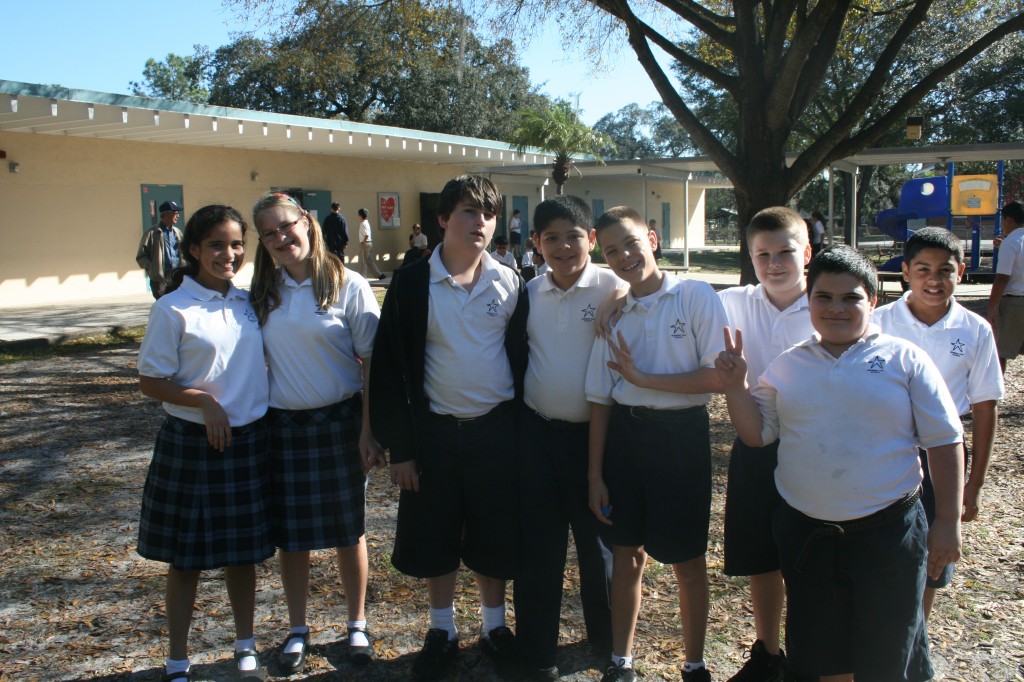
When Madelyn Tomas was in the third grade, teachers at her public school wanted to retain the speech- impaired student another year. Madelyn’s mom, a school nurse, chose, instead, to move her daughter to Morning Star Catholic School in Tampa, Fla.
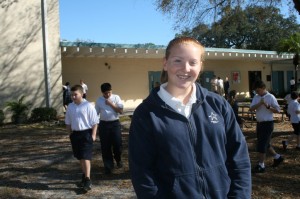
“It saved my life, to be honest,’’ said Madelyn, now an eighth-grader who earned straight A’s last semester. “The small class sizes helped me focus. I’ve gone from thinking I couldn’t learn anything to knowing I can learn.’’
That’s the goal at Morning Star, one of six private schools and three programs in the Florida Catholic Diocese system that serves 566 children with special needs. The first Morning Star opened in Jacksonville in 1956 to serve boys and girls with physical needs. Through the years, the schools have broadened that focus based on a growing need to provide more educational opportunities for students with learning disabilities.
“They’re just children,’’ said Principal Eileen Daly, who has been with the Tampa school for 23 years, first as a reading teacher. “They come to us to learn what they’re good at and what they can do. … But really we’re teaching them how to do well in school.’’
Morning Star opened in Tampa in 1958 in a small concrete-block building behind Most Holy Redeemer Catholic Church. Most of the school’s 78 students in grades first through eighth have been diagnosed with a speech, language or learning disability. The rest have a combination of physical impairments and developmental disorders, such as autism or Tourette syndrome.
Sixty students receive McKay Scholarships, state dollars that go to families of children with special needs. Another four receive Florida Tax Credit Scholarships for low-income students, which provides $4,880 of the school’s $10,750 annual tuition. (Step Up For Students is the nonprofit that administers the scholarship program and co-hosts this blog).
The school, a nonprofit that receives funding from the diocese as well as the community, also provides its own scholarships. About half of the student body is Catholic, but Morning Star focuses more on academics, said administrative coordinator Paul Reed.
Students are taught in classes with 10 students per teacher. Sometimes, when the school has extra dollars, there’s an aide. There also are SMART boards, laptops and iPad minis in almost every class. Junior high students are allowed to bring their own devices, such as a tablet.
Lessons adhere to the same standards and benchmarks taught at other diocesan schools, but Morning Star students don’t receive grades. Learning gains are measured through the Iowa Test of Basic Skills.
Students also are exposed to classes and clubs found in most any school, like student council, yearbook and show choir – “so they can kind of be top dog, where elsewhere they wouldn’t be,’’ Daly said.
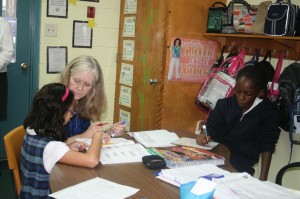
They also can take comfort in an environment where every student has some kind of learning disability. Student and parents say it adds up to a giant boost of self-confidence that has a lasting impact.
Before 12-year-old Ariely Burgos came to Morning Star this year, she had no social life and loathed going to her private school, said her mom, Linery, an administrative assistant to the superintendent of Catholic schools in St. Petersburg. Dyslexia and issues with auditory processing made it difficult for Ariely to grasp certain concepts and to gain acceptance among her peers.
“She never came home with friends’ numbers and she hated reading,’’ Linery Burgos said. But after two weeks at her new school, she was reading books at home and waiting for phone calls from classmates.
“Everyone is in the same class, but they’re learning different things,’’ Ariely said during a recent afternoon break. No one knows what grade you’re in – or cares, she said. Her mother gives a lot of credit to the teachers and staff.
“They show them how to be an advocate for their learning needs,’’ she said. Even without grades, “they challenge them and push them to always do better. When they teach, they teach with love. The love and patience makes a big difference.’’
Many teachers have been with Morning Star for decades, Daly said. But a few, like junior high social studies and science teacher Keli O’Neal, are new to the school – and to the concept of smaller classes with more individualized learning.
“Here, you get to really be a teacher,’’ said O’Neal, who was hired this school year after a traditional public school career in Mississippi. “You get to plan a lesson and finish a lesson … and if you need to stop and re-teach something – that’s OK.’’
O’Neal loves how sweet and innocent the children are, and that she doesn’t have to teach to a test, like some of her public school counterparts do for state assessments.
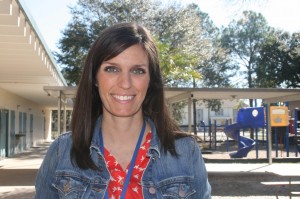
“It was hard to get used to,’’ O’Neal said, “but it’s really wonderful.’’
It’s an approach that seems to work.
On average, three students a year land at the highly-regarded Tampa Catholic High School, where Madelyn, the former public school student, has set her sights. Most, though, head to public high schools with similar programs for learning-challenged students.
About 95 percent of Morning Star graduates receive a high school diploma. A handful goes on to four-year colleges and universities, but most students who continue their education enroll in community colleges, Daly said. Others receive referrals for transition services and job training. At Morning Star, it’s always about looking ahead and keeping faith.
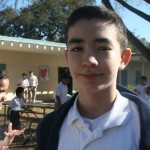
“They tell you to keep trying,’’ said 12-year-old Christopher Garcia, a sixth-grader with attention deficit disorder who enrolled in the school three years ago. “And never give up on yourself.’’


